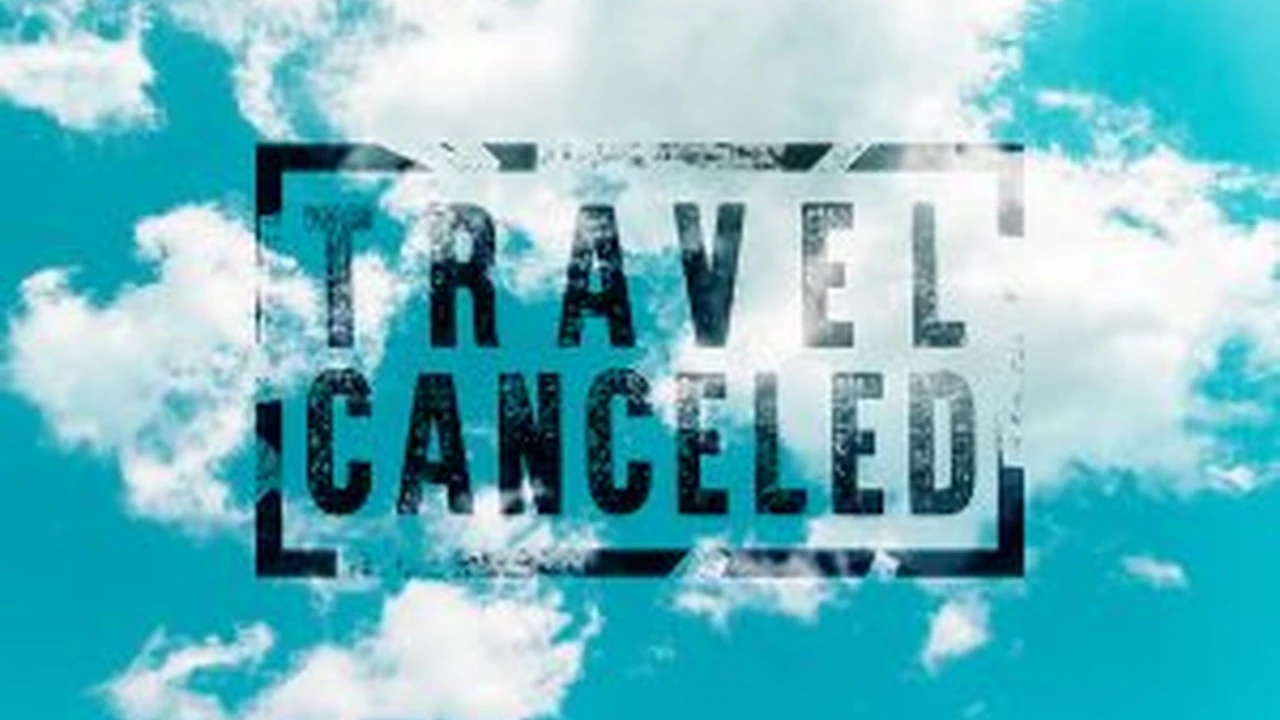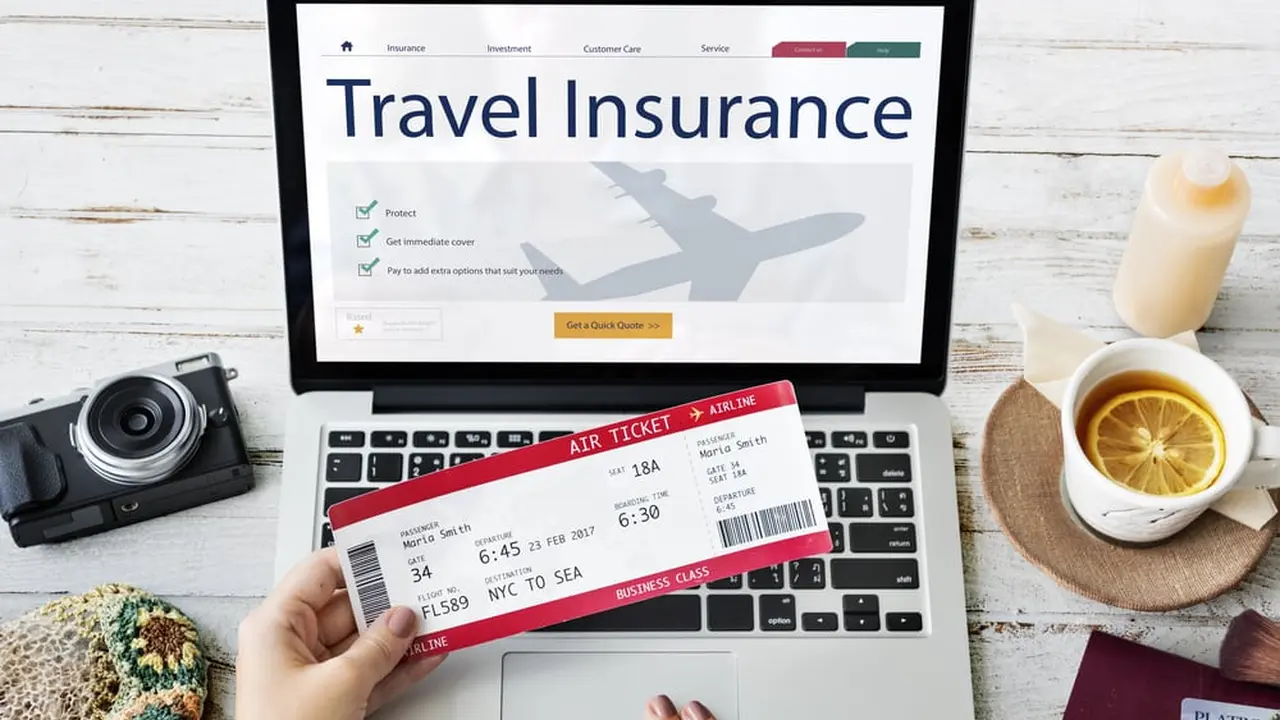The Truth About 'Cancel For Any Reason' Travel Insurance

Understanding Cancel For Any Reason CFAR Travel Insurance Coverage
Okay, let's dive into the world of "Cancel For Any Reason" (CFAR) travel insurance. It sounds pretty straightforward, right? You can cancel your trip for *any* reason and get reimbursed. But hold on, there's more to it than meets the eye. CFAR is like the VIP pass of travel insurance – it offers broader protection than standard policies, but it comes with its own set of rules and limitations. Think of it as the insurance policy's cool older sibling.
Standard travel insurance covers you for specific, unforeseen events, like illness, injury, or a family emergency. But what if you just… change your mind? Or your friend cancels, and you don't want to go alone? Or you simply wake up one morning and decide you'd rather binge-watch Netflix than climb Machu Picchu? That's where CFAR comes in. It allows you to cancel your trip for literally *any* reason not otherwise excluded, even if it's just a bad hair day. This peace of mind is, of course, what you're paying for.
CFAR Travel Insurance Eligibility Requirements and Restrictions
Now, before you start dreaming of risk-free travel, let's talk about the fine print. CFAR isn't available to everyone, and it usually comes with some pretty specific requirements. First, you typically need to purchase CFAR within a short window after booking your trip – often within 14 to 21 days. This is crucial! Miss this window, and you're likely out of luck. The insurance companies want to make sure you're not buying it *after* you know something is going to go wrong.
Second, you usually have to insure 100% of your pre-paid, non-refundable trip costs. You can't just insure a portion of your trip. They want to avoid people only insuring the part they think is most likely to be canceled. So, if you've booked flights, hotels, tours, and excursions, you need to insure them all. Also, CFAR usually only reimburses a percentage of your trip cost, typically 50% to 75%. So, even if you cancel for a valid reason, you won't get all your money back. Read the policy carefully to understand the reimbursement percentage.
Finally, you usually have to cancel your trip at least 48 hours before your scheduled departure. Waiting until the last minute won't cut it. Some policies even require cancellation more than 48 hours in advance. Again, check the fine print!
Comparing CFAR Travel Insurance Policies and Providers
Okay, so you're interested in CFAR. Great! But which policy should you choose? There are tons of providers out there, and their policies can vary significantly. Let's look at a few examples:
- Allianz Global Assistance: Allianz is a well-known and reputable travel insurance provider. Their CFAR option is typically an add-on to their standard policies. They offer a range of coverage levels and are known for their customer service. Expect to pay a premium for their brand recognition.
- Travel Guard: Travel Guard is another major player in the travel insurance market. They also offer CFAR as an add-on. Their policies often have competitive pricing, but it's important to compare the coverage details carefully. They might have specific exclusions or limitations.
- World Nomads: World Nomads is popular with backpackers and adventure travelers. While they don't offer a true "Cancel For Any Reason" policy, their Explorer Plan offers broader coverage than many standard policies and may be sufficient for some travelers. It's worth considering if you're looking for adventure-specific coverage.
When comparing policies, pay close attention to the following:
- Reimbursement Percentage: As mentioned earlier, CFAR policies typically only reimburse 50% to 75% of your trip cost. The higher the percentage, the better.
- Covered Reasons: Even with CFAR, there might be some exclusions. Read the policy carefully to understand what's *not* covered.
- Pre-Existing Conditions: Some policies may exclude coverage for pre-existing medical conditions.
- Customer Service: Check online reviews to see what other travelers have said about the provider's customer service. You want to be able to reach them easily if you need to file a claim.
- Price: Of course, price is a factor. But don't just choose the cheapest policy. Make sure it offers adequate coverage for your needs.
Real-World Scenarios When CFAR Travel Insurance is Essential
Let's imagine a few scenarios where CFAR could be a lifesaver:
- Scenario 1: The Change of Heart: You've booked a romantic getaway to Paris, but a month before your trip, you and your significant other decide to separate. Standard travel insurance wouldn't cover this. But with CFAR, you can cancel your trip and get reimbursed for a portion of your pre-paid expenses.
- Scenario 2: Political Unrest: You're planning a trip to a country that suddenly experiences political unrest. While some standard policies might cover cancellations due to civil unrest, CFAR offers broader protection. You can cancel your trip even if the government hasn't issued a travel advisory.
- Scenario 3: Fear of Flying: You've booked a long-awaited trip to Australia, but as the departure date approaches, your anxiety about flying becomes overwhelming. Standard travel insurance typically doesn't cover fear of flying. But with CFAR, you can cancel your trip and get some of your money back.
- Scenario 4: Pandemic Uncertainty: We've all learned a lot about travel uncertainty in recent years. Even if your trip isn't directly impacted by a pandemic-related travel restriction, you might simply feel uncomfortable traveling. CFAR gives you the flexibility to cancel your trip without losing all your money.
CFAR Travel Insurance Cost Considerations and Budgeting
So, how much does CFAR cost? Well, it's generally more expensive than standard travel insurance. Expect to pay a premium of around 40% to 60% more than a standard policy. The exact cost will depend on several factors, including your age, the cost of your trip, your destination, and the provider you choose.
Here's a rough example:
Let's say you're a 40-year-old traveling to Europe for two weeks, and your trip costs $5,000. A standard travel insurance policy might cost around $200. A CFAR add-on might cost an additional $80 to $120, bringing the total cost to $280 to $320.
Is it worth it? That depends on your risk tolerance and your travel plans. If you're traveling during hurricane season, or if you're worried about political instability, or if you simply want the peace of mind of knowing you can cancel for any reason, CFAR might be a worthwhile investment.
Specific CFAR Travel Insurance Product Recommendations and Pricing
Let's get down to some specific product recommendations and pricing (note: prices are estimates and can vary):
- Allianz Global Assistance - Prime Plan with CFAR add-on: This is a comprehensive plan that includes coverage for trip cancellation, trip interruption, medical expenses, and baggage loss. The CFAR add-on allows you to cancel for any reason and receive 75% reimbursement. For the example trip above ($5,000 trip for a 40-year-old to Europe), this might cost around $350 - $400. Pros: Excellent customer service, comprehensive coverage. Cons: More expensive than some other options. Best For: Travelers who want peace of mind and aren't as concerned about price. Use Case: A family vacation to Disney World where any number of unforeseen events could cause cancellation.
- Travel Guard - Preferred Plan with CFAR add-on: This plan offers similar coverage to the Allianz Prime Plan, but it might be slightly less expensive. The CFAR add-on also offers 75% reimbursement. For the same example trip, this might cost around $300 - $350. Pros: Competitive pricing, good coverage. Cons: Customer service ratings can be mixed. Best For: Travelers who want a good balance of coverage and price. Use Case: A cruise to Alaska where weather or mechanical issues could cause cancellation.
- Seven Corners - RoundTrip Choice Plan with CFAR add-on: Seven Corners is known for its customizable plans. Their RoundTrip Choice Plan allows you to tailor your coverage to your specific needs. The CFAR add-on offers 75% reimbursement. For the same example trip, this might cost around $280 - $330. Pros: Customizable coverage, competitive pricing. Cons: Not as well-known as some other providers. Best For: Travelers who want to customize their coverage and are comfortable researching different options. Use Case: A solo backpacking trip through Southeast Asia where flexibility and potential itinerary changes are likely.
Comparing CFAR Travel Insurance Products: A Detailed Table
To make it easier to compare these options, here's a table summarizing the key features:
| Feature | Allianz Global Assistance - Prime Plan with CFAR | Travel Guard - Preferred Plan with CFAR | Seven Corners - RoundTrip Choice Plan with CFAR |
|---|---|---|---|
| Reimbursement Percentage | 75% | 75% | 75% |
| Trip Cancellation Coverage | Yes | Yes | Yes |
| Trip Interruption Coverage | Yes | Yes | Yes |
| Medical Expense Coverage | Yes | Yes | Yes |
| Baggage Loss Coverage | Yes | Yes | Yes |
| Customer Service Rating | Excellent | Good | Good |
| Estimated Price (for $5,000 trip) | $350 - $400 | $300 - $350 | $280 - $330 |
Understanding the Application Process for CFAR Travel Insurance
Applying for CFAR travel insurance is usually pretty straightforward. You'll typically need to provide information about your trip, including your destination, travel dates, and the cost of your trip. You'll also need to provide personal information, such as your age and contact information.
Be prepared to answer questions about your health history. Some policies may exclude coverage for pre-existing medical conditions. Read the application carefully and answer all questions honestly. Misrepresenting your health history could invalidate your policy.
Once you've submitted your application, you'll typically receive a quote within a few minutes. If you're happy with the quote, you can purchase the policy online. You'll receive a confirmation email with your policy documents. Keep these documents in a safe place, both electronically and in print, in case you need to file a claim.
Navigating CFAR Travel Insurance Claims and Reimbursements
Okay, so you've had to cancel your trip. Now what? Here's how to navigate the claims process:
- Notify the Insurance Company: Contact the insurance company as soon as possible after you decide to cancel your trip. You'll typically need to provide them with your policy number and details about why you're canceling.
- Gather Documentation: You'll need to provide documentation to support your claim. This might include your flight itinerary, hotel reservations, tour confirmations, and any other receipts for pre-paid, non-refundable expenses. You'll also need to provide proof of cancellation, such as a cancellation confirmation from the airline or hotel.
- Submit Your Claim: Follow the insurance company's instructions for submitting your claim. You'll typically need to fill out a claim form and submit it along with your supporting documentation.
- Be Patient: The claims process can take time. The insurance company will need to review your claim and verify your documentation. Be prepared to wait several weeks, or even months, for your claim to be processed.
- Follow Up: If you haven't heard back from the insurance company within a reasonable time, follow up with them to check on the status of your claim.
Remember, CFAR policies only reimburse a percentage of your trip cost. So, don't expect to get all your money back. But even a partial reimbursement can be a significant help.
Potential Downsides and Limitations of CFAR Travel Insurance
While CFAR offers valuable protection, it's not a perfect solution. Here are some potential downsides and limitations to keep in mind:
- Cost: As we've discussed, CFAR is more expensive than standard travel insurance.
- Reimbursement Percentage: You'll only get a percentage of your trip cost back.
- Restrictions: There are often strict deadlines for purchasing CFAR and canceling your trip.
- Exclusions: Even with CFAR, there might be some exclusions.
- Complexity: Travel insurance policies can be complex and difficult to understand.
Before you purchase CFAR, carefully weigh the pros and cons and decide if it's the right choice for you. Read the policy documents carefully and ask the insurance company any questions you have.
Is CFAR Travel Insurance Right for You? A Personalized Assessment
So, should *you* buy CFAR travel insurance? Here's a quick quiz to help you decide:
- Are you worried about unexpected events disrupting your travel plans? (Yes/No)
- Are you traveling during hurricane season or to a politically unstable region? (Yes/No)
- Are you willing to pay a premium for peace of mind? (Yes/No)
- Do you have a history of canceling trips at the last minute? (Yes/No)
- Do you have significant non-refundable trip expenses? (Yes/No)
If you answered "Yes" to most of these questions, CFAR travel insurance might be a good choice for you. But if you answered "No" to most of these questions, standard travel insurance might be sufficient.
Ultimately, the decision is a personal one. Consider your individual circumstances, your risk tolerance, and your travel plans. Do your research, compare policies, and choose the option that's right for you.
:max_bytes(150000):strip_icc()/277019-baked-pork-chops-with-cream-of-mushroom-soup-DDMFS-beauty-4x3-BG-7505-5762b731cf30447d9cbbbbbf387beafa.jpg)






